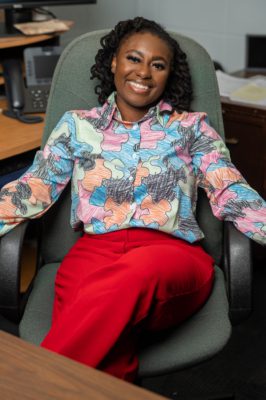National Infertility Week April 23rd-29th

After experiencing miscarriages and infertility challenges, Olymphia O’neale-White underwent in vitro fertilization (IVF). She was surprised and discouraged by her medical providers who did not offer her emotional support or referrals to a mental health professional during this time.
The BIPOC facts The sheet released by the American Psychological Association states, “Black and Latina women are more likely to seek fertility treatment than their white counterparts. However, when financial barriers are removed or reduced, there is an increase in utilization of assisted reproductive services to Black women.”
This experience made Olympia question the presence, or lack thereof, of mental health professionals related to reproductive health and infertility. Olympia’s passion project to learn more about this topic became her research for her dissertation as she is a Doctoral Candidate at the University of Kentucky in Lexington. Olympia’s research consists of three main components: a systematic literature review, the current curriculum for social work students, and an 8-hour reproductive healthcare continuing education course for Masters students of Social Work.

“I want to help social workers normalize talking about reproductive healthcare with clients, during our assessments and especially with marginalized populations,” Olymphia shares. She also emphasizes the importance of mental health providers feeling confident and competent while working with people dealing with infertility challenges.
National Infertility Week (NIAW) is April 23-29is a movement, founded in 1989 by RESOLVE. Per RESOLVE, “myths and misinformation often appear in media stories or influence lawmakers and companies to implement policies that create barriers for people who need help building their families. And people still feel isolated when they struggle to start a family, so we want to empower them to share their story and find a community that cares.
If someone in your circle is sharing their experience with infertility, Olympia recommends offering to listen as well as learning more about the topic through organizations like Broken Brown Eggs, Sisters in Loss, the movie Eggs over Easy, and research studies shared by the Center for Disease Control (CDC) and the American Psychological Association.
If you are interested in Olympia’s research or want to connect with her, connect with her on LinkedIn or by emailing her at via mylensconsulting@gmail.com





